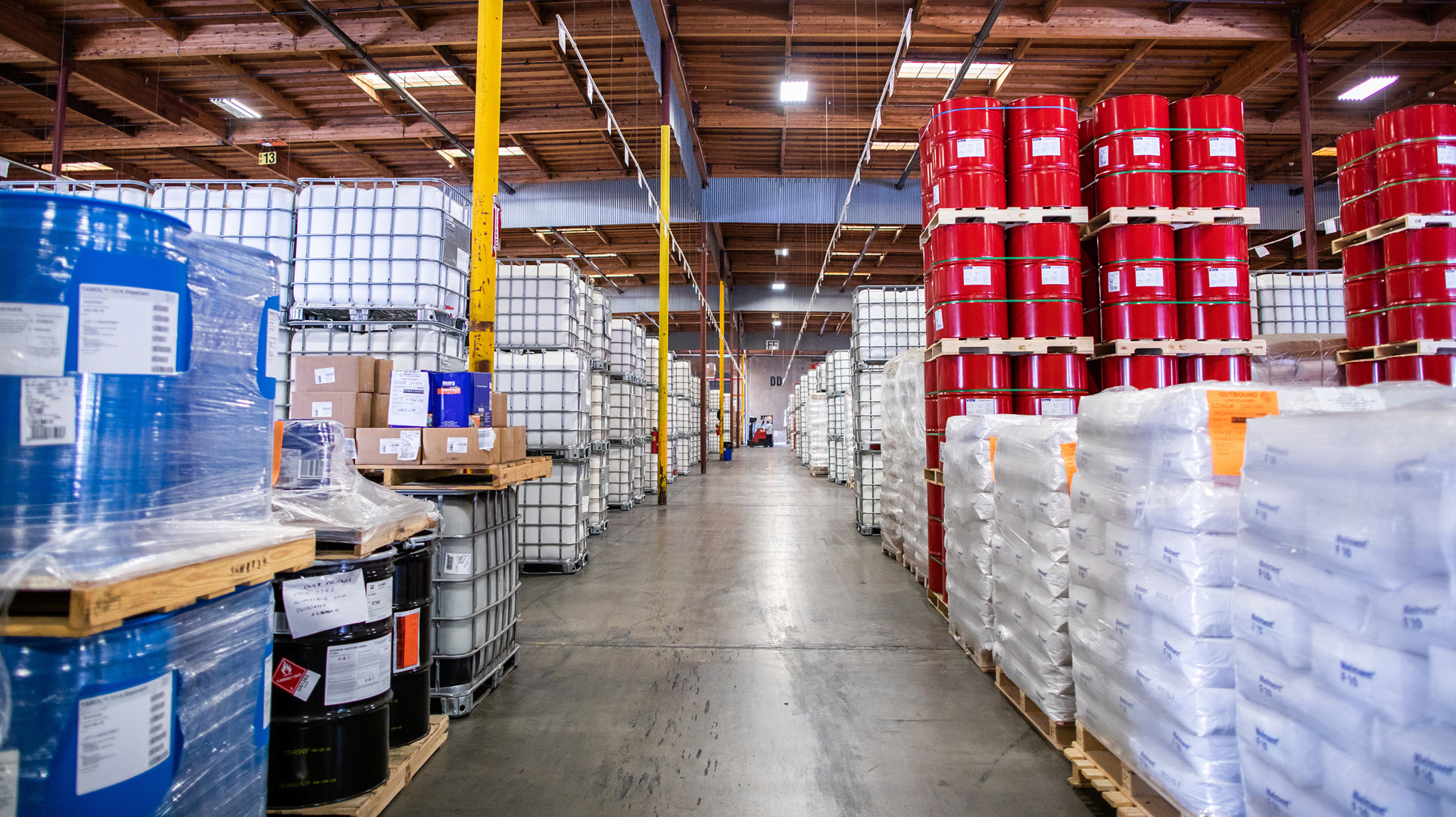Disinfectant, Industrial Cleaners & Degreasers Chemicals

Why choose ENVO Disinfectant & Cleaning Chemicals?
Customized Products: ENVO understands the unique needs of each industry and customer. Our disinfectants and cleaners are carefully developed to ensure they not only meet, but exceed your expectations.
Free samples: You can experience the product first with our free sample service. This helps ensure that the product you choose is exactly what you need.
Transparent test report: We provide detailed product test report information, allowing you to fully understand the performance and quality of the product.
Custom Packaging Services: ENVO offers custom packaging services to meet your unique brand and market needs.
Satisfaction Guarantee: We are confident in the quality and effectiveness of our products. If you’re not satisfied after your purchase, we offer unconditional free returns to ensure your shopping experience is worry-free.
If you’re seeking a new provider for Disinfectant & Cleaning Chemicals, contact us today at +86 136 8322 7764 or send us an inquiry to engage with one of our skilled technicians.
Product and Application Information
- Descalers
- Degreasers
- General Purpose Cleaners
- Metal Finishing Pretreatment Cleaners
- Cleaners & Sanitizers for the Food and Beverage Industry
Contact us for more Disinfectant & Cleaning Chemicals information by giving us a call at +86 136 8322 7764 or emailing us . We look forward to assisting you!
PRODUCT AND APPLICATION INFORMATION
Mechanism:
Kill microorganisms: Disinfectants and bactericides achieve sterilization and disinfection effects by releasing active ingredients, such as chlorine, odorin, peroxide, etc., to destroy the cell structure of microorganisms.
Disruption of cell membranes: Certain disinfectants can react with microbial cell membranes, destroying their integrity and causing cell death.
Redox reaction: The oxidizing agent in the disinfectant can undergo a redox reaction with the organic matter in the microbial cells, leading to the inactivation of the microorganisms.
Application areas:
Drinking water treatment: Used to kill bacteria, viruses and other microorganisms in water to ensure the safety of drinking water.
Swimming Pool Water Treatment: Disinfectants and sanitizers are used to control bacteria and other pathogens in swimming pool water and keep it clean.
Wastewater treatment: In the wastewater treatment process, disinfectants are used to kill harmful microorganisms in the wastewater and prevent them from causing pollution to the environment.
Medical Facilities: Used in hospitals, laboratories and other places to ensure that surfaces, tools and equipment are sterile and harmless.
Main categories:
Chlorine disinfectants: including chlorine, sodium hypochlorite, etc., have a wide range of sterilization and disinfection applications.
Odor disinfectant: Such as bromine disinfectant, commonly used in swimming pool water treatment.
Peroxide Disinfectants: Include hydrogen peroxide, which has oxidizing properties and is used for surface disinfection and some specialty applications.
Ultraviolet disinfection: Use ultraviolet rays to irradiate water bodies to destroy the DNA structure of microorganisms and achieve disinfection effects.
Alcohol disinfectants: such as ethanol and isopropyl alcohol, used for surface disinfection and hand disinfection.
- Descalers
Mechanism:
Complexing and Dispersing: The active ingredients in descalers are usually complexing or dispersing agents that combine with hard water ions in the water (such as calcium and magnesium) to form soluble complexes or dispersions and prevent them from settling.
Ion exchange: Some descalers contain ingredients that can ion exchange with hard water ions, replacing calcium and magnesium ions in solid scale with soluble ions, making scale easier to remove.
Acidic reaction: Descalers sometimes contain acidic ingredients that react with scale, lowering its pH and making it easier to remove.
Application areas:
Heat exchangers and cooling systems: Descalers are often used to remove scale that forms in heat exchangers and cooling systems to improve heat transfer efficiency.
Boilers and heating equipment: Used to remove scale in boilers and heating equipment, reduce energy consumption, and extend equipment life.
Water pipes and pipes: Used to remove scale from water pipes and pipes to maintain smooth flow and efficiency of the water system.
Household appliances: Some household appliances, such as coffee machines, kettles, etc., can also be descaled and maintained using Descalers.
Main categories:
Acid Descalers: Including citric acid, acetic acid, etc., dissolve scale through acidic reaction.
Complexing Descalers: Including complexing agents such as EDTA (ethylenediaminetetraacetic acid), which can form water-soluble complexes to prevent the formation of scale.
Phosphoric acid descalers: include phosphoric acid and other phosphates that dissolve and prevent scale formation.
- Degreasers
Mechanism:
Emulsification and dispersion: Degreasers contain ingredients such as surfactants that emulsify and disperse grease, fat and dirt in water, making them easier to rinse and remove with water.
Dissolve and break down: The chemical ingredients in Degreasers dissolve and break down oils and organic matter, reducing their surface tension and allowing them to disperse in water.
Deposit removal: Degreasers sometimes contain deposit-removing ingredients that can help remove grease and dirt from equipment surfaces and pipes.
Application areas:
Industrial equipment cleaning: Used to clean accumulated grease and dirt in machinery and equipment, production lines and industrial sites.
Car cleaning and maintenance: Suitable for cleaning and degreasing car surfaces, engines and workshop equipment.
Kitchen Cleaning: Used to remove grease and residue from kitchen equipment, flues and floors.
Pipe and drainage system maintenance: Used to clean grease, sediment and dirt in pipes to prevent blockages and maintain smooth water flow.
Main categories:
Solvent-based Degreers: Including organic solvents, such as acetone and ether substances, which can dissolve grease.
Water-based Degreers: Water-based, containing surfactants and other water-soluble ingredients, suitable for water-based environments and environmentally friendly.
Biodegradable Degreesers: Contain biodegradable ingredients, have less impact on the environment, and are suitable for some occasions with high environmental requirements.
These classifications are based on the chemical properties and application scenarios of Degreesers. In water treatment, Degreers are widely used in cleaning and maintaining industrial equipment, automobiles, kitchens, and drainage systems, helping to improve equipment efficiency and extend service life.
Mechanism:
Surfactant function: The surfactants in Detergents can reduce the surface tension of water, making it easier for water to wet and penetrate, helping to remove dirt.
Emulsifying and Dispersing: Detergents are able to emulsify grease and organic matter, dispersing them in water, making them easier to clean and rinse away.
Dissolve: The ingredients in Detergents dissolve all types of dirt, including oils, proteins, and carbohydrates.
Deposit removal: Detergents sometimes contain deposit-removing ingredients to help remove deposits and dirt from equipment surfaces and within pipes.
Application areas:
Household cleaning: Used to clean clothes, tableware, floors and other household items.
Industrial cleaning: Suitable for cleaning and maintenance of industrial equipment, mechanical parts, production lines, etc.
Food processing: Used to clean food processing equipment, containers and pipelines to ensure food safety.
Car Washing: Used for washing vehicle surfaces, engine rooms and workshop equipment.
Medical facilities: Used for cleaning and disinfection in hospitals, laboratories and other places.
Main categories:
Cationic detergents: often contain ingredients such as quaternary ammonium salts, which have strong decontamination and bactericidal effects.
Anionic detergents: including sulfate esters and sulfonate esters, which have a good removal effect on grease.
Non-ionic detergents: such as polyoxyethylene ether, etc., have a good cleaning effect on various types of dirt.
Complex detergent: Contains a combination of different types of surfactants to provide a variety of cleaning effects.
- General Purpose Cleaners
Envo products for general purpose industrial cleaning, including floor cleaners.
- Metal Finishing Pretreatment Cleaners
Pretreatment cleaners for metal finishing, including spray, immersion and tank cleaners.
- Cleaners & Sanitizers for the Food and Beverage Industry
Envo products for the Food & Beverage Industry include Acid, Alkaline, Foaming and Chlorinated Cleaners. Envo supplies an array of Sanitizers for Food & Beverage Applications.

Focus on the production and supply
of chemical products
We are a chemical raw material manufacturer integrating production, R&D and sales.

Water and wastewater
treatment chemicals
Chemicals for boiler, cooling, pure water, drinking water and wastewater treatment.

Delivery and logistics
services
Global coverage, delivering your goods quickly and safely to all parts of the world.
Envo Chemical Co.,Ltd has a Disinfectant and cleaning solution for you.
Contact our technical staff today and let us know how we can help. We’ll provide insights into our products and work with you to come up with the best solution for your operation.
Call/Whatsapp +86 136 8322 7764 or contact us below. Keep in mind that in addition to our Disinfectant & Cleaning Chemicals, we also provide a variety of water treatment chemicals to keep your operation running optimally. We look forward to working with you.

